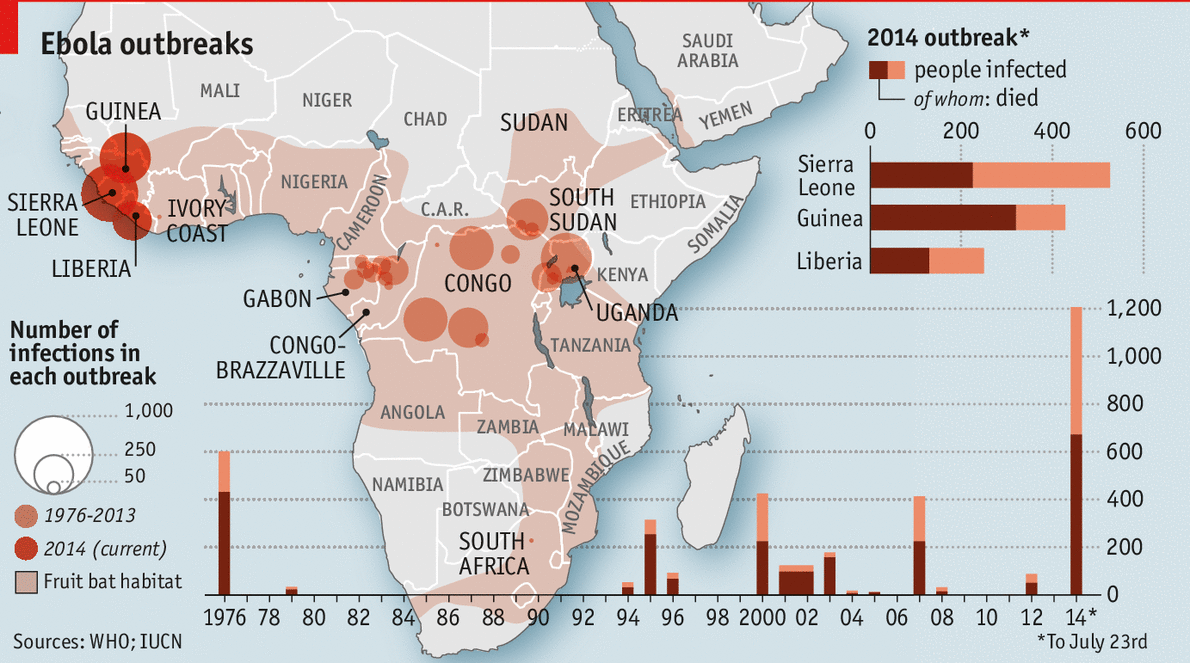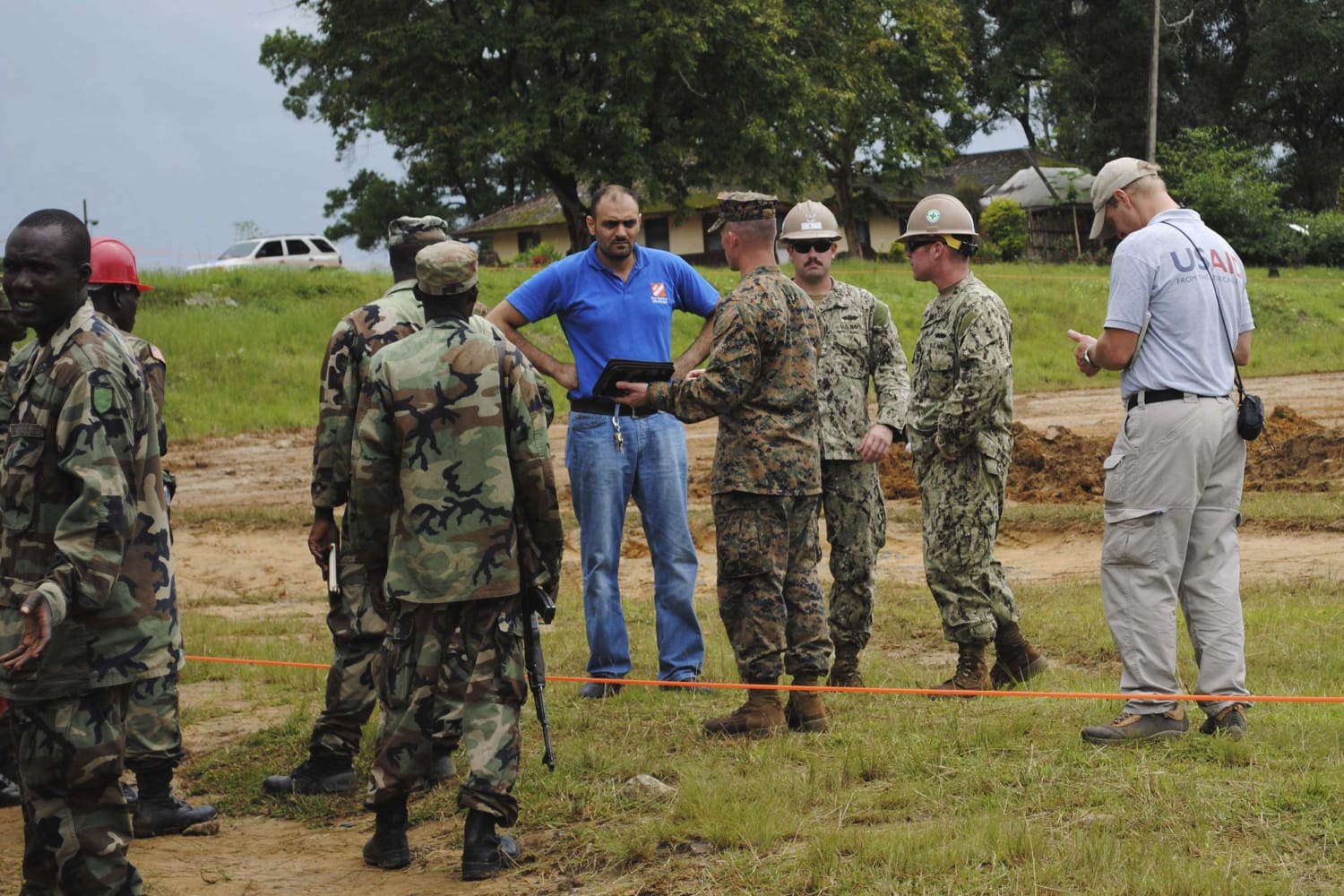It’s
been nearly one year since the first report of the 2014 Ebola outbreak. During
that year, the world revisited the danger surrounding biological hazards. As
of December 14th, 2014, there have been an estimated 18,603
cases and 6,915 deaths. Some say that these numbers have been undercooked and
that the real number is significantly larger. Ebola has primarily been situated
within Guinea, Sierra Leone, and Liberia. And the outbreak is still not over.
It will continue to consume lives.
Yet, as
the outbreak slowly begins to disappear from the news, it is important to
remember the lessons that the virus has taught us about biological threats. It
is important to understand that our first line of defense stems from quick
identification, strong hospital infrastructure, public education, and
international support. And yet, hardly any of these were in place when the
virus struck.
The
virus was first reported in Gueckedou, a region in Guinea that bordered Liberia
and Sierra Leone. From there, it traveled through to its neighbors. The primary
vector for the virus most likely came from the bush meat within the area.
Popular amongst the locals and a great source of much desired protein, bush
meat can easily spread diseases through improper preparation. Undercooking, lax
sanitary conditions, cuts/lacerations, and several other conditions can allow
the virus/disease to spread from the animal to humans if the virus/disease is biologically
capable of making that animal-to-human jump. From there, it has predominately transferred
from person to person through contact with bodily fluid. Liberia, the worst hit
country so far, suffered from the virus mainly due to its inability to properly
educate the people on how to avoid the disease, maintain the hospital resources
to help prevent infected people from spreading the disease, and the large lack
of international aid until later in the year. An earlier and well-supported
response could have quelled or limited the spread of the virus, as the majority
of cases exponentially occurred during the past four months.
What
happened in Liberia was the result of a combined international denial of
responsibility. Mainly because people around the world didn’t feel threatened
by it until someone from their own country was infected and were largely
ignorant about what it was. One doesn’t have to look far to see the various
examples of the public’s ignorance surrounding Ebola. Korean
Air notably canceled its Kenyan flights, which is on the opposite side of
the continent and has not had any reports of the virus, for fears of Ebola. As
long as ignorance and deniability continue, we risk opening ourselves to a
worldwide epidemic. While it will most likely not play out like World War Z or
be as action packed as Rambo III, a worldwide pandemic is still a huge threat. The 1918 influenza killed between 20-40
million people. Pandemics are still a threat in our day and age. And we are
unready for it.
Ebola
has reminded us about the lessons that we still need to learn. We still need to
globally educate people to take the right sanitary precautions when an outbreak
is occurring where they live. We still need to improve hospital infrastructure
around the world in order to properly be able to quarantine and treat the
infected. We still need to take responsibility worldwide for tracking and
responding to the outbreaks of these deadly viruses. Finally, the world has to
realize that an epidemic hurts everyone. While a now outdated number, Ebola
will cost the world more than $32 billion dollars.



No comments:
Post a Comment